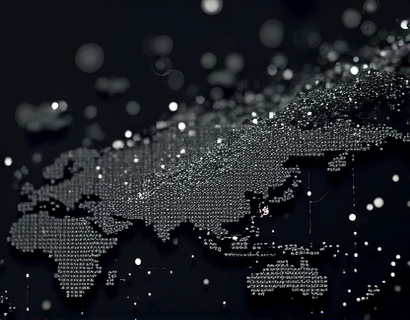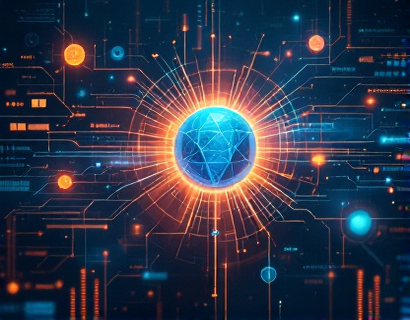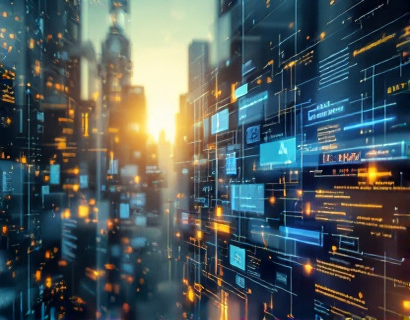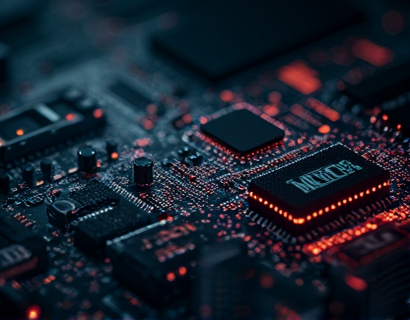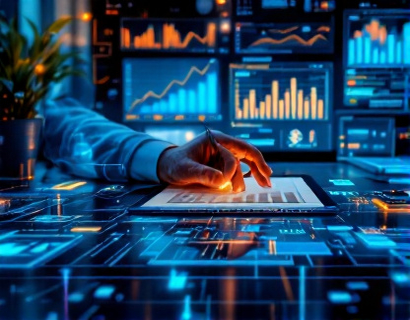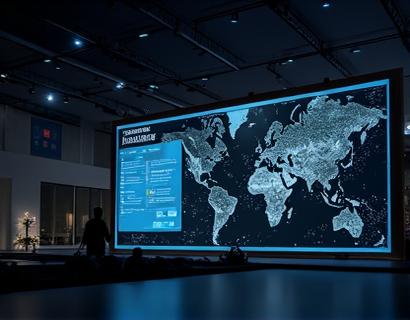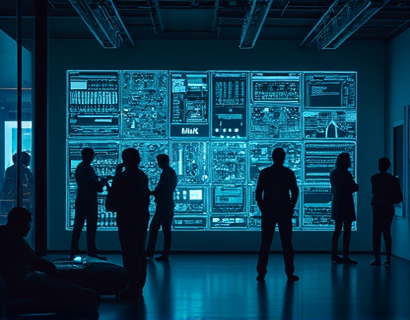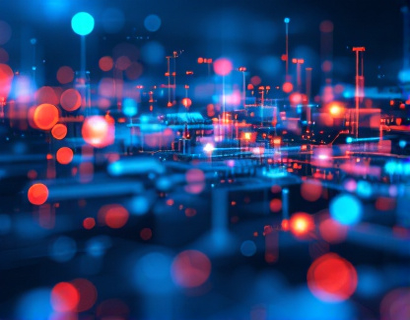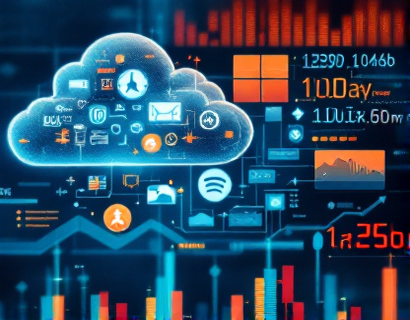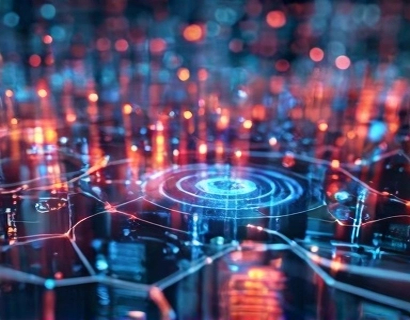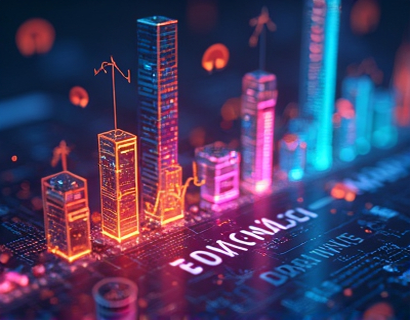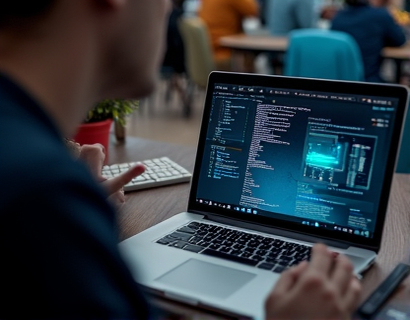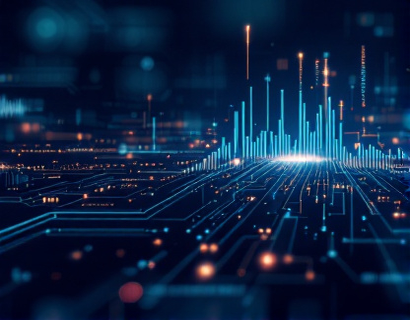Decentralized Productivity Revolution: Maximizing Efficiency with AI and Crypto Integration
The integration of artificial intelligence (AI) and cryptocurrency is ushering in a new era of productivity and efficiency, fundamentally transforming how we interact with digital tools and applications. This revolution is not just about enhancing individual tasks but about creating a seamless, interconnected ecosystem where decentralized applications (dApps) leverage AI to optimize workflows and user experiences. For tech enthusiasts, professionals, and early adopters, understanding this convergence is crucial for staying ahead in the rapidly evolving digital landscape.
The traditional centralized models of software and services are being challenged by decentralized alternatives that offer greater transparency, security, and user control. The advent of blockchain technology has enabled the creation of dApps, which operate on decentralized networks, eliminating the need for intermediaries. When combined with AI, these dApps can automate complex processes, learn from user behavior, and adapt to improve performance over time. This synergy is redefining productivity tools, making them smarter, more efficient, and tailored to individual needs.
One of the key benefits of this integration is the enhancement of task management and collaboration. Decentralized task management platforms powered by AI can streamline workflows by automatically assigning tasks based on user availability and expertise. These platforms use smart contracts to ensure accountability and transparency, reducing the risk of miscommunication and ensuring that projects stay on track. For instance, an AI-driven dApp can analyze past project data to predict potential bottlenecks and suggest optimal resource allocation, thereby maximizing efficiency.
Another area where AI and cryptocurrency are making a significant impact is in data management and security. Decentralized data storage solutions, such as InterPlanetary File System (IPFS), combined with AI algorithms, can provide robust and secure data handling. AI can optimize data storage by identifying redundant files, compressing data, and ensuring that only necessary information is stored and accessed. This not only reduces costs but also enhances data privacy and integrity, as users have more control over their data and can choose who has access to it.
The financial aspect of productivity tools is also being transformed by the integration of cryptocurrency. Traditional payment systems often involve high transaction fees and long processing times, which can hinder productivity. Cryptocurrency-based payment systems offer faster, cheaper, and more secure transactions. For example, AI-powered financial management dApps can automatically convert currencies, manage budgets, and track expenses using blockchain transactions. This seamless integration reduces administrative overhead and allows professionals to focus on core tasks rather than financial management.
AI-driven personalized recommendations are another game-changer in the realm of productivity. By analyzing user behavior and preferences, AI can suggest the most effective tools and workflows tailored to individual needs. This personalization extends to everything from project management software to time tracking apps, ensuring that users are always using the best tools for their specific tasks. For instance, an AI-powered dApp can recommend the most efficient coding environment based on a developer's past projects and coding style, thereby boosting productivity and creativity.
The decentralized nature of these applications also fosters a more democratic and inclusive tech ecosystem. Traditional software often requires users to trust a central authority, which can be a barrier for many. Decentralized dApps, on the other hand, operate on open networks where users can participate and contribute without needing permission. This openness encourages innovation and collaboration, as developers from around the world can contribute to the development and improvement of these tools. The community-driven approach ensures that the applications evolve to meet the real needs of users, rather than being dictated by a centralized entity.
Moreover, the use of AI in decentralized identity management is enhancing user security and privacy. Self-sovereign identity solutions allow users to control their digital identities without relying on third-party providers. AI can help manage and secure these identities by detecting anomalies and potential threats, ensuring that user data remains protected. This not only builds trust in decentralized systems but also empowers users to take charge of their digital lives.
The convergence of AI and cryptocurrency is also driving advancements in smart contract automation. Smart contracts can be programmed to execute complex tasks based on predefined conditions, eliminating the need for manual intervention. AI can further optimize these contracts by predicting outcomes, identifying potential risks, and suggesting improvements. For example, in supply chain management, AI can analyze real-time data to adjust smart contracts dynamically, ensuring that goods are delivered efficiently and cost-effectively. This level of automation not only saves time but also reduces errors and increases overall reliability.
In the realm of content creation and management, AI-powered dApps are revolutionizing how professionals produce and distribute their work. AI can assist in content generation, editing, and optimization, providing valuable insights to enhance the quality and reach of content. Decentralized content platforms can leverage blockchain to ensure fair compensation for creators, using smart contracts to automate royalty payments. This combination of AI and cryptocurrency ensures that content creators are rewarded fairly and transparently, fostering a more sustainable and equitable creative ecosystem.
The educational sector is also benefiting from this technological fusion. AI-driven decentralized learning platforms can offer personalized education experiences, adapting to the learning pace and style of each student. These platforms can use blockchain to verify credentials and ensure the integrity of educational records, providing a secure and trustworthy system for lifelong learning. AI can curate relevant learning materials, recommend courses, and even facilitate peer-to-peer learning, making education more accessible and effective.
For businesses, the integration of AI and cryptocurrency in decentralized productivity tools can lead to significant cost savings and operational efficiencies. AI-powered dApps can automate routine tasks such as data entry, customer support, and inventory management, freeing up employees to focus on strategic initiatives. Blockchain-based supply chain solutions can provide end-to-end visibility, ensuring that products are sourced ethically and sustainably. AI can optimize logistics and distribution, reducing costs and improving delivery times. This holistic approach not only enhances productivity but also aligns with growing consumer demands for transparency and sustainability.
As the technology matures, we can expect to see more innovative applications of AI and cryptocurrency in productivity tools. The development of decentralized AI marketplaces, where users can buy, sell, and trade AI models and services, is on the horizon. These marketplaces will be powered by blockchain to ensure fair transactions and AI integrity, allowing developers to monetize their creations directly. AI models can be trained and improved through community contributions, creating a virtuous cycle of innovation and improvement.
The future of decentralized productivity is bright, with AI and cryptocurrency leading the way. As more users and businesses adopt these technologies, we can anticipate a more efficient, secure, and user-centric digital environment. The key to success in this new paradigm is embracing the decentralized ethos, leveraging AI to enhance capabilities, and fostering a collaborative ecosystem where innovation thrives. For those ready to explore this exciting frontier, the possibilities are endless.



